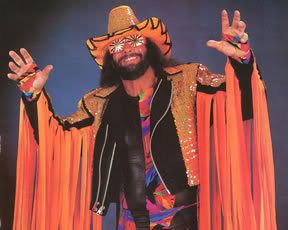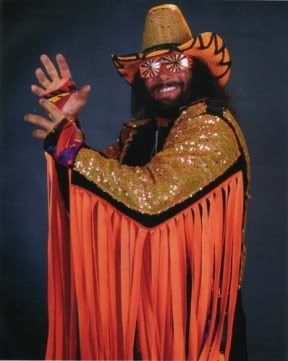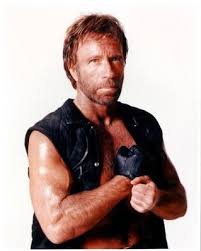You are using an out of date browser. It may not display this or other websites correctly.
You should upgrade or use an alternative browser.
You should upgrade or use an alternative browser.
To Skim or Not to Skim?
- Thread starter pixelpixi
- Start date
G
GreshamH
Guest
Sounds to much like degassing and that is an entire different cup o soup that will not help  Now Foam Fractioning sounds like it looks and works :lol:
Now Foam Fractioning sounds like it looks and works :lol:
G
GreshamH
Guest
But that's a great brand name and not so much a good descriptive name of the process :lol:
GreshamH said:But that's a great brand name and not so much a good descriptive name of the process :lol:
wait for it...wait for it...

skimming -->foaminating
skimmer-->foaminator
cone skimmer-->cone foaminator
skimmate-->foaminate
oh yeah!!!

G
GreshamH
Guest
Tony FTW!
/thread over
/thread over
G
GreshamH
Guest
No need. Randy Savage pretty much ends it.
There's only one above that...

There's only one above that...

sfsuphysics
Supporting Member
So would Dow sue if we said it had scrubbing bubbles? 
Mr. Ugly said:I know what air guitar is...
But air stripping?

No pole?
G
GreshamH
Guest
Maybe go with skrubin bubbles would be far enough away? 
sfsuphysics
Supporting Member
hmmm depends how litigious they happen to be... I mean someone like Apple, they'll sue a high school because their symbol is an apple with a bite chopped out of it.
Of course then the other side is you might get a newbie who screams "I sprayed a whole can of scrubbing bubbles into my tank because it's too damn much for the plastic one, and it killed all my fish"
Of course then the other side is you might get a newbie who screams "I sprayed a whole can of scrubbing bubbles into my tank because it's too damn much for the plastic one, and it killed all my fish"
G
GreshamH
Guest
Patrick, are you the TM attorney? If so, what about them being in different uses, IE. human food VS pet food?
GreshamH said:Patrick, are you the TM attorney? If so, what about them being in different uses, IE. human food VS pet food?
Dear Gresham.
I SUE YOU!!!
Sincerely,
Bill Gates.
I used to do a lot of Trademark work for a company that no longer exists because it was bought out by a billionaire yachtman recently.
Gresham--typically your TM protection only extends to the category (or similar category) which your TM was registered under (there are over 30,000 categories by the way). Take the TM "ORA" for example. ORA gets TM protection against all other marks in the same category that it's registered under (probably aquacultured fish). It also probably gets TM protection against all products that are in similar categories--probably anything having to do with fish. ORA does not get TM protection against products in completely different categories--such as geothermal power (see here: http://www.google.com/finance?client=ob&q=NYSE:ORA).
The more famous your TM is, the broader the protection you get. Take "McDonalds" for example (arguably the most famous TM in the world). It is so famous that it not only transcends the category in which it was filed under, it probably transcends all products in every category. You probably couldn't sell a new LED light fixture called McDonalds LEDs (or MackDawnoldz for that matter) without first getting a nasty cease and desist letter from the Hamburgler and a big fine/injunction if the matter made it to court.
As you can probably surmise, there are lots of arguments over what constitutes a "famous" mark. Like everything pertaining to legal stuff, that's why you hire the hot shot expensive lawyer to better make your case.
Well if you're still reading this, I guess that's your mini legal lesson of the day. BTW, there are a bunch of exceptions to this general rule so if your cousin's cousin's aunt's hairdresser has been selling McDonald's Soul Glow Hair Activator for years without any problems, there's probably a good reason why they are doing so. (OK, that example was just an excuse to link my favorite fake commercial of all time--see here: http://www.youtube.com/watch?v=ktl6L3ZwvL4)
Gresham--typically your TM protection only extends to the category (or similar category) which your TM was registered under (there are over 30,000 categories by the way). Take the TM "ORA" for example. ORA gets TM protection against all other marks in the same category that it's registered under (probably aquacultured fish). It also probably gets TM protection against all products that are in similar categories--probably anything having to do with fish. ORA does not get TM protection against products in completely different categories--such as geothermal power (see here: http://www.google.com/finance?client=ob&q=NYSE:ORA).
The more famous your TM is, the broader the protection you get. Take "McDonalds" for example (arguably the most famous TM in the world). It is so famous that it not only transcends the category in which it was filed under, it probably transcends all products in every category. You probably couldn't sell a new LED light fixture called McDonalds LEDs (or MackDawnoldz for that matter) without first getting a nasty cease and desist letter from the Hamburgler and a big fine/injunction if the matter made it to court.
As you can probably surmise, there are lots of arguments over what constitutes a "famous" mark. Like everything pertaining to legal stuff, that's why you hire the hot shot expensive lawyer to better make your case.
Well if you're still reading this, I guess that's your mini legal lesson of the day. BTW, there are a bunch of exceptions to this general rule so if your cousin's cousin's aunt's hairdresser has been selling McDonald's Soul Glow Hair Activator for years without any problems, there's probably a good reason why they are doing so. (OK, that example was just an excuse to link my favorite fake commercial of all time--see here: http://www.youtube.com/watch?v=ktl6L3ZwvL4)
G
GreshamH
Guest
Vincerama2
Guest
I think that skimmers provide the benefit of making a lot of bubbles. I am guessing that that helps with getting oxygen into tank water. I dunno, all I know is that I bought a skimmer and darnit, I'm going to use it! Actually I have like 5 skimmers.
V
V
G
GreshamH
Guest
Tests have shown skimmers do not increase DO all that much. Well, EB did the tests FWIW.
